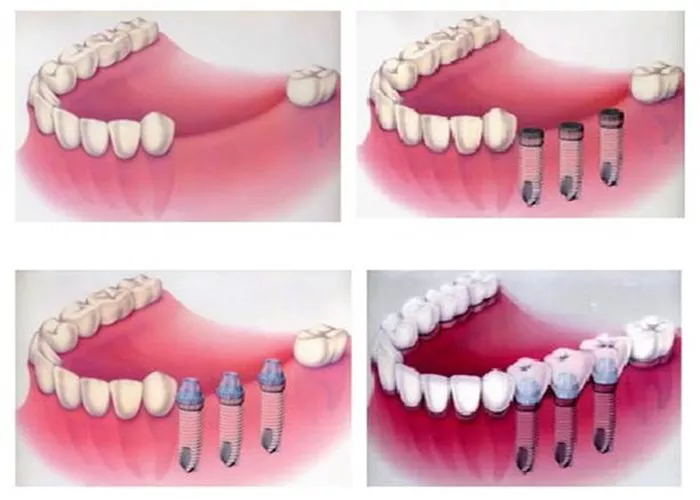Dental implants are a popular and effective method for replacing missing teeth. They are designed to integrate with the jawbone and provide a stable foundation for artificial teeth, thereby restoring function and aesthetics to the smile. However, the term “dissolution” is not typically used in the context of dental implants, as they are made of materials that are not soluble in the oral environment. Instead, dental implants are intended to be permanent fixtures in the mouth. However, there are certain materials and situations where the concept of dissolution or biodegradation may be relevant. This article will provide a detailed introduction to the materials used in dental implants, explain why they do not dissolve, and discuss the situations where biodegradation may occur.
Materials Used in Dental Implants
Dental implants are typically made of titanium or titanium alloys. Titanium is a biocompatible material that integrates well with bone tissue through a process called osseointegration. This means that the bone grows around and attaches to the implant, creating a strong and stable connection. Titanium is chosen for its durability, corrosion resistance, and excellent biocompatibility.
In addition to titanium, some dental implants may also use other materials such as zirconia or ceramics for the abutment (the part that connects the implant to the artificial tooth) or the crown (the visible part of the artificial tooth). These materials are chosen for their aesthetic properties and ability to mimic the appearance of natural teeth.
Why Dental Implants Do Not Dissolve
Dental implants are designed to be permanent fixtures in the mouth. The materials used in their construction, such as titanium and zirconia, are not soluble in the oral environment. This means that they will not dissolve or break down over time. Instead, they are intended to remain in place and provide long-term support for artificial teeth.
The process of osseointegration further reinforces the stability of dental implants. As the bone grows around and attaches to the implant, it creates a strong and durable connection that can withstand the forces of chewing and biting. This process takes several months to complete, but once it is achieved, the implant becomes a permanent part of the jawbone.
Situations Where Biodegradation May Occur
While dental implants themselves do not dissolve, there are certain situations where biodegradation may occur in the context of dental implant surgery. One example is the use of biodegradable materials for temporary implants or scaffolds. These materials are designed to break down over time and be replaced by the patient’s own bone tissue.
Biodegradable materials used in dental implants may include polymers, calcium phosphates, or other substances that can be absorbed by the body. These materials are typically used in situations where it is desirable to promote bone regeneration or to provide temporary support for soft tissue healing.
However, it is important to note that biodegradable materials are not commonly used for the primary implant fixture itself. Instead, they are more likely to be used for temporary purposes or as adjunctive therapies to support the healing process.
Management of Dental Implant Infections
While dental implants are designed to be permanent and do not dissolve, they can still be susceptible to infections. These infections can occur at any stage of the implant process, from the initial surgery to the placement of the final restoration.
Symptoms of a dental implant infection may include pain, swelling, redness, and discharge around the implant site. If left untreated, these infections can lead to more serious complications such as bone loss, implant failure, and even the spread of infection to other parts of the body.
To manage a dental implant infection, it is important to seek prompt medical attention. Treatment may include antibiotics to clear the infection, as well as surgical intervention to remove any infected tissue or hardware. In some cases, the implant itself may need to be removed and replaced once the infection has been resolved.
Preventing Dental Implant Infections
The best way to prevent dental implant infections is to follow the post-operative instructions provided by your dentist. This may include:
- Taking antibiotics as prescribed to prevent infection.
- Keeping the implant site clean and free of food particles and plaque.
- Avoiding hard or sticky foods that could damage the implant or disrupt the healing process.
- Regular dental check-ups to monitor the health of the implant and surrounding tissues.
Conclusion
In conclusion, dental implants are designed to be permanent fixtures in the mouth and do not dissolve over time. The materials used in their construction, such as titanium and zirconia, are durable and biocompatible. While biodegradable materials may be used for temporary purposes or as adjunctive therapies, they are not commonly used for the primary implant fixture itself.
Related topics:

